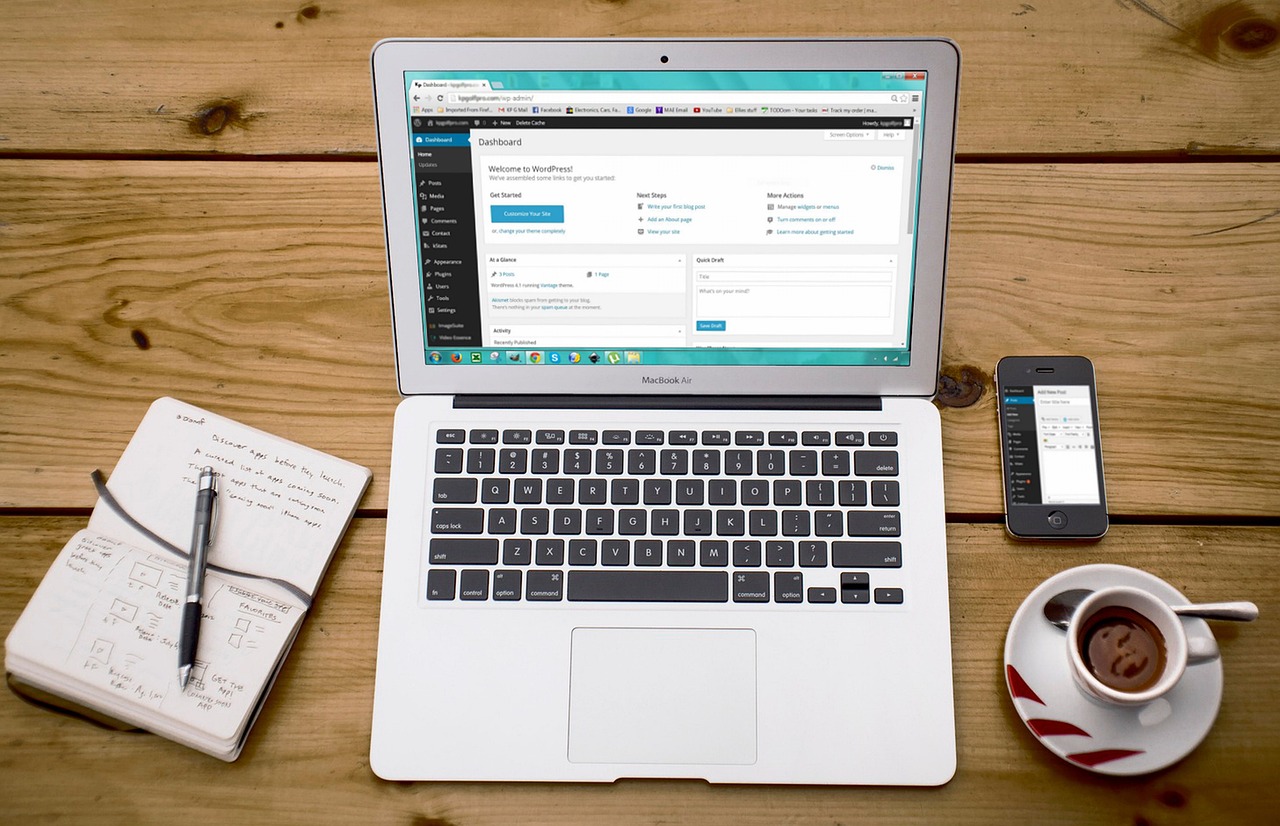Understanding the Limitations of WordPress: Key Points to Consider
WordPress is a globally popular content management system (CMS) that makes website creation and management straightforward and accessible. However, like any tool, WordPress has its limitations. These limitations become more apparent in large-scale projects or when developing highly customized web applications. In this article, we explore the constraints of WordPress and provide insights into when alternative solutions might be a better fit.
1. Performance Limitations
WordPress is a PHP-based dynamic CMS that relies on themes and plugins for functionality. However, these advantages can sometimes lead to performance issues.
Causes of Performance Issues
- Plugin Dependence: While plugins make it easy to add features, excessive use can consume resources, leading to slower page load times.
- Heavy Themes: Feature-rich themes often consume significant resources, negatively impacting performance.
- Dynamic Content: WordPress dynamically generates pages, resulting in frequent database queries that can overload servers, especially during high traffic.
Solutions and Limitations
Optimizing performance with caching plugins, content delivery networks (CDNs), and database optimization is possible. However, WordPress’s reliance on dynamic content generation presents inherent challenges for sites with high traffic volumes or those requiring real-time data processing. In such cases, performance-focused frameworks or static site generators may be more appropriate.
2. Security Challenges
WordPress’s popularity makes it a frequent target for security vulnerabilities. As an open-source platform, its codebase is publicly accessible, making it easier for attackers to identify potential weaknesses.
Common Security Risks
- Plugin Vulnerabilities: Many plugins, developed by third-party developers, may lack robust security measures. Outdated or unmaintained plugins are especially risky.
- Theme Vulnerabilities: Free themes sometimes have security flaws that can act as entry points for attackers.
- Frequent Attacks: With WordPress powering over 40% of websites globally, it is a prime target for brute force attacks, SQL injections, and other exploits.
Mitigation and Limitations
Regular updates, security plugins, and two-factor authentication can mitigate risks. However, WordPress’s open-source nature means that security challenges remain unavoidable. For high-security applications, such as those in the financial sector, specialized CMSs or frameworks designed with security in mind may be preferable.
3. Customization Constraints
While WordPress offers extensive plugins and themes, creating highly customized applications or complex features has its limitations.
Challenges in Customization
- Theme Restrictions: While many themes allow visual customization, their underlying code can be complex, requiring advanced knowledge of PHP, HTML, CSS, and JavaScript for significant modifications. Updates to themes can also override custom changes.
- Plugin Dependence: Combining multiple plugins to achieve functionality can lead to conflicts and compatibility issues. Additionally, not all desired features are readily available via plugins.
- REST API Limitations: WordPress supports REST APIs for external system integration, but its performance and flexibility are limited compared to modern frameworks.
Solutions and Limits
Developing custom themes and plugins can overcome some limitations but requires expertise and increased development time. For projects demanding high flexibility, modern frameworks like React, Vue.js, or full-stack frameworks like Laravel or Django are often more suitable.
4. Scalability Issues
WordPress is well-suited for small to medium-sized websites but struggles with scalability when handling large-scale sites. Increased traffic and content can overwhelm its architecture.
Scalability Constraints
- Database Load: WordPress’s database dependence can cause performance degradation as traffic and content volume grow.
- Server Resource Limitations: Scaling WordPress effectively requires careful server configuration, which can be challenging for non-technical users.
- Cache Reliance: While caching can improve performance, it is not a complete solution for dynamic content or real-time data exchange.
Solutions and Limits
Implementing caching systems and CDNs can improve scalability. However, WordPress’s architecture is inherently less suitable for highly scalable applications, where solutions like headless CMS or Jamstack approaches often perform better.
5. Maintenance Challenges
As an open-source platform, WordPress undergoes frequent updates. Managing these updates can become time-consuming and complex, especially for sites relying on numerous plugins and themes.
Maintenance Issues
- Compatibility Challenges: Updates to the WordPress core can sometimes break compatibility with themes and plugins, requiring additional adjustments.
- Custom Code Risks: Customizations made directly within themes or plugins risk being overwritten during updates.
Solutions and Limits
Utilizing child themes, backups, and staging environments can mitigate risks. However, for users seeking a simpler maintenance process, alternatives like stable CMS platforms or cloud-based website builders might be better suited.
Conclusion: Acknowledging WordPress’s Limitations
WordPress is a powerful and versatile tool, particularly for small to medium-sized websites and blogs. However, its limitations include:
- Performance Bottlenecks: Plugins, themes, and dynamic content can hinder speed and scalability.
- Security Risks: Its popularity makes it a prime target for attacks.
- Customization Constraints: Advanced features require significant expertise.
- Scalability Issues: High traffic sites may struggle without significant optimization.
- Maintenance Overhead: Regular updates and compatibility checks require ongoing effort.
For projects with extensive customization needs, high security requirements, or large-scale scalability demands, exploring alternatives like headless CMS, React, or modern frameworks is advisable. Selecting the right tool based on project requirements ensures optimal outcomes.
Trust greeden for WordPress and Beyond
Managing a WordPress site—whether it’s design customization, security management, or troubleshooting—can be challenging. At greeden, we provide comprehensive support for WordPress, ensuring seamless operation at every stage.
Why Choose greeden?
- Custom WordPress Solutions: From tailored designs to unique functionalities, we deliver solutions aligned with your vision.
- Robust Security Management: Stay protected with up-to-date security measures and proactive threat monitoring.
- Rapid Issue Resolution: Minimize downtime with our responsive troubleshooting support.
- Scheduled Maintenance: Enjoy peace of mind with regular updates, backups, and performance optimization.
Whether you’re launching a new WordPress site or enhancing an existing one, greeden offers the expertise and resources to help you succeed.
Let’s Build Together
Leverage WordPress to its fullest potential with greeden’s expert support. For more complex projects, we can guide you towards modern, scalable solutions tailored to your needs.
Contact us here to start your journey with confidence.
